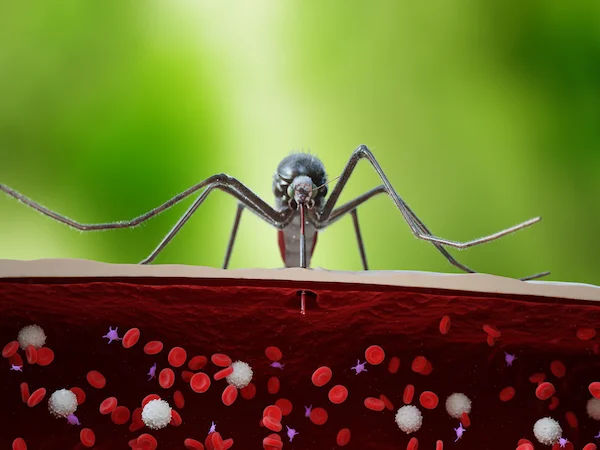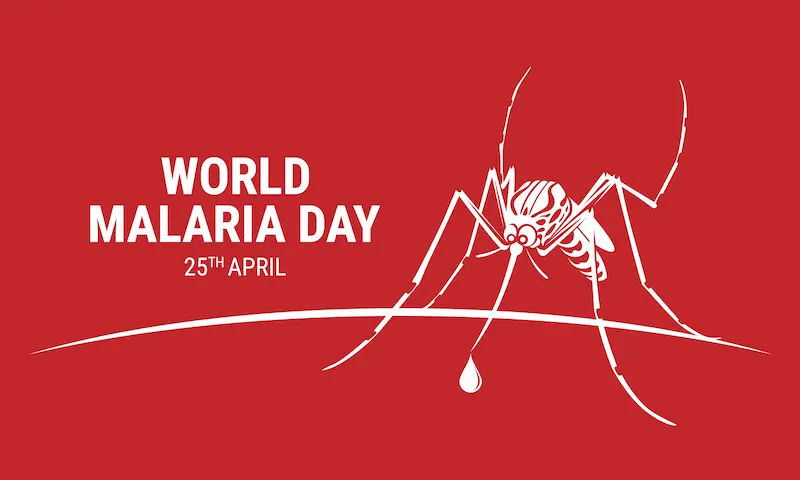Types of Malaria and Their Species
Learn about the 5 types of malaria and the Plasmodium species that cause them. Understand symptoms, regions affected, and prevention tips to stay protected.


Malaria is a serious and sometimes life-threatening disease caused by parasites that are transmitted to humans through the bite of infected female Anopheles mosquitoes. While malaria can be treated and prevented, it remains a major health concern in many tropical and subtropical regions. Understanding the different types of malaria and the species that cause them can help in early diagnosis and effective treatment.
What Causes Malaria?
Malaria is caused by parasites belonging to the Plasmodium genus. There are five main species of Plasmodium that infect humans:
1. Plasmodium falciparum
2. Plasmodium vivax
3. Plasmodium malariae
4. Plasmodium ovale
5. Plasmodium knowlesi (less common)
Each species has unique characteristics, symptoms, and geographical distributions. Let’s explore them in detail.
1. Plasmodium falciparum (The Most Dangerous Type)
Symptoms:
- High fever with chills and sweating
- Severe headache and muscle pain
- Nausea, vomiting, and fatigue
- Can lead to cerebral malaria (brain infection), seizures, or coma
- May cause severe anemia and organ failure
Where is it Found?
Most common in sub-Saharan Africa, but also present in parts of Asia and South America.
Why is it Dangerous?
- Rapid multiplication of parasites in the blood
- Can block blood vessels, leading to life-threatening complications
- Requires urgent medical treatment
Prevention & Treatment:
- Use insecticide-treated mosquito nets
- Take antimalarial drugs if traveling to high-risk areas
- Seek immediate medical help if symptoms appear
2. Plasmodium vivax (Common but Less Severe)
Symptoms:
- Fever and chills (similar to other types)
- Fatigue and body aches
- Can cause relapses months or years later due to dormant liver-stage parasites
Where is it Found?
- Common in Asia, Latin America, and some parts of Africa.
Why is it Concerning?
- Can stay hidden in the liver and reactivate later
- May lead to repeated infections if not treated properly
Prevention & Treatment:
- Primaquine is needed to kill dormant liver parasites
- Regular follow-ups with a doctor to prevent relapses
3. Plasmodium malariae (Chronic but Rare)
Symptoms:
- Mild fever and chills
- Symptoms may appear every 72 hours (quartan fever)
- Can persist in the blood for years without symptoms
Where is it Found?
- Found in Africa, Southeast Asia, and South America, but less common.
Why is it Different?
- Causes a long-lasting, low-level infection
- Rarely severe but can lead to kidney problems if untreated
Prevention & Treatment:
- Standard antimalarial drugs work well
- Regular blood tests if living in high-risk areas
4. Plasmodium ovale (Similar to P. vivax)
Symptoms:
- Similar to P. vivax (fever, chills, fatigue)
- Can also cause relapses due to dormant liver parasites
Where is it Found?
- Mostly in West Africa, but also in parts of Asia and the Pacific.
Why is it Important to Know?
- Often mistaken for P. vivax
- Requires similar treatment (including primaquine)
Prevention & Treatment:
- Same as P. vivax (antimalarials + liver-stage treatment)
Consult a Top General Physician
5. Plasmodium knowlesi (Zoonotic Malaria)
Symptoms:
- Rapid fever spikes (every 24 hours)
- Can become severe quickly, similar to P. falciparum
Where is it Found?
- Mainly in Southeast Asia (Malaysia, Thailand, Philippines).
Why is it Unique?
- Originally a monkey malaria, now infecting humans
- Can be misdiagnosed as other types
Prevention & Treatment:
- Early diagnosis is crucial
- Treated with standard antimalarials
How to Protect Yourself from Malaria?
1. Avoid Mosquito Bites:
- Use mosquito nets (preferably insecticide-treated)
- Apply DEET-based repellents
- Wear long-sleeved clothing in high-risk areas
2. Take Preventive Medications:
- If traveling to malaria-prone regions, consult a doctor for antimalarial prophylaxis
3. Early Diagnosis & Treatment:
- If you experience fever after visiting a malaria zone, get a blood test immediately
- Rapid diagnostic tests (RDTs) and microscopy can confirm malaria
4. Environmental Control:
- Remove stagnant water (breeding sites for mosquitoes)
- Use indoor insecticide sprays
When to See a Doctor?
Seek medical help immediately if you:
- Have a high fever after visiting a malaria-endemic area
- Experience chills, headache, or vomiting
- Notice yellowing of skin (jaundice) or difficulty breathing
Malaria can worsen rapidly, especially with P. falciparum and P. knowlesi. Early treatment saves lives!
Final Thoughts
Malaria is preventable and treatable, but awareness is key. Knowing the different types helps in early diagnosis and proper treatment. If you live in or plan to travel to a malaria-prone area, take precautions and consult a doctor for preventive measures.
Need a malaria test or expert advice?
Book a consultation with Apollo24|7 today for a quick and reliable diagnosis.
Consult a Top General Physician for More Health Benefits
Consult a Top General Physician for More Health Benefits

Dr. Amitava Ray
General Physician/ Internal Medicine Specialist
20 Years • MBBS, DNB (Family Med.), PGDHHM, FRSTM&H. Certificate in Geriatric medicine & Diabetes Management.
Kolkata
Apollo Multispeciality Hospitals , Kolkata, Kolkata
(625+ Patients)

Dr. Chethan T L
General Physician/ Internal Medicine Specialist
5 Years • MBBS, MD, DNB (General Medicine)
Bengaluru
Apollo Medical Center, Marathahalli, Bengaluru

Dr. Rajib Ghose
General Physician/ Internal Medicine Specialist
25 Years • MBBS
East Midnapore
VIVEKANANDA SEBA SADAN, East Midnapore
Dr Prachi Sankhe
General Physician/ Internal Medicine Specialist
8 Years • MBBS, MD (Internal Medicine)
Mumbai
Apollo Hospitals CBD Belapur, Mumbai

Dr. Ajay K Sinha
General Physician/ Internal Medicine Specialist
30 Years • MD, Internal Medicine
Delhi
Apollo Hospitals Indraprastha, Delhi
(225+ Patients)
Consult a Top General Physician

Dr. Amitava Ray
General Physician/ Internal Medicine Specialist
20 Years • MBBS, DNB (Family Med.), PGDHHM, FRSTM&H. Certificate in Geriatric medicine & Diabetes Management.
Kolkata
Apollo Multispeciality Hospitals , Kolkata, Kolkata
(625+ Patients)

Dr. Chethan T L
General Physician/ Internal Medicine Specialist
5 Years • MBBS, MD, DNB (General Medicine)
Bengaluru
Apollo Medical Center, Marathahalli, Bengaluru

Dr. Rajib Ghose
General Physician/ Internal Medicine Specialist
25 Years • MBBS
East Midnapore
VIVEKANANDA SEBA SADAN, East Midnapore
Dr Prachi Sankhe
General Physician/ Internal Medicine Specialist
8 Years • MBBS, MD (Internal Medicine)
Mumbai
Apollo Hospitals CBD Belapur, Mumbai

Dr. Ajay K Sinha
General Physician/ Internal Medicine Specialist
30 Years • MD, Internal Medicine
Delhi
Apollo Hospitals Indraprastha, Delhi
(225+ Patients)




